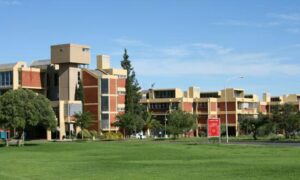[ad_1]
THE bishop of the Reformed Evangelical Anglican Church of Namibia (REACH-Namibia), Lukas Katenda, says modern education has not equipped children to think for the future.
Katenda was speaking at the launch of the Young Men’s Christian Association (YMCA) of Namibia in Windhoek on Friday.
“Back then, there was a system in which people were taught to think for themselves. To shift what’s necessary and reject what’s not important. In modern education, everything is dropped on the table and our kids are not equipped enough to think for themselves what is best for now and what is best for the future,” he said.
Katenda also lamented the fact that few young men attend church services regularly. “Young men are irregular about Sunday services… and are the most difficult groups to draw to the weekly bible studies or prayer meetings, and the most inattentive during meetings,” he said.
Katenda said young men are squandering their lives with negative influences.
“There is a need to rescue the young men from the bondage of sin and recklessness.
“This need cannot be overemphasised, to call the young men to love God’s people and learn the golden rule of doing unto others what they want to do unto them,” he said.
Katenda said not all young men are bad but they simply lack guidance.
“I have in my small world intervened in some lost young men but today I am proud to say if young people could be guided in a way that’s right, there are those who would accept,” he said.
YMCA Namibia’s Kirsti Mukwiilongo said the organisation is one of the largest in Africa and the world serving young people through different programmes and activities for their own holistic development, and to serve their own communities.
“We are registered with the ministry of health, and have partnered with the ministry of education to run a programme within and outside of the school environment, as evidenced by the fact that more children are being exposed to physical, sexual and psychological violence in our schools, as well as their homes and communities.
“Apart from sexual and reproductive health, mental health, gender-based violence and suicide, YMCA will engage schools on environment and climate issues, sport for development and protection, and agriculture for food security,” she said.
Mukwiilongo said they are focused on humanitarian efforts and are in process of establishing YMCA Namibia’s regional and district offices, and have recruited and are still recruiting as many youths as possible.
“Every child is welcome, from the age of 10 upwards, regardless of the church, ethnicity or colour,” she said.
Ministry of Justice deputy chief legislative officer Robyn Kleinhans said Namibia is the youngest of the allies in YMCA, the largest pan-African movement on the continent.
“The vision of the YMCA is to empower young people for the African renaissance based on Christian values and it aspires to develop young people for the holistic transformation of their communities,” said Kleinhans, adding that one of the pillars of the African YMCA is youth justice.
“One of the most serious issues we are facing in Namibia today is access to justice.
Across the country many of our people do not have access to legal services to which they constitutionally are entitled.
“Young people are engaged in a holistic approach to sharing personal development and transformation from a perceived point to being citizens. Justice delay is justice denied and, therefore, we welcome the YMCA,” she said
[ad_2]
Source link




